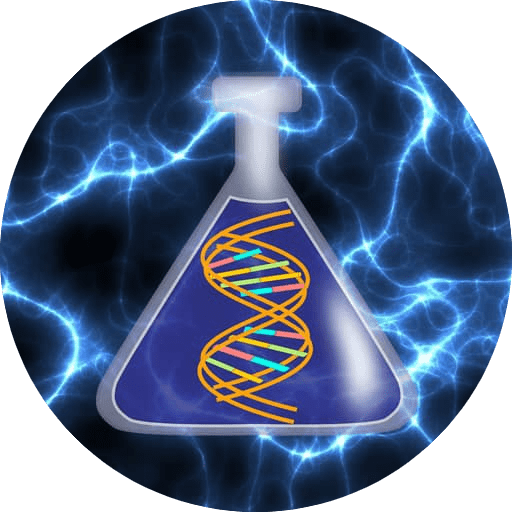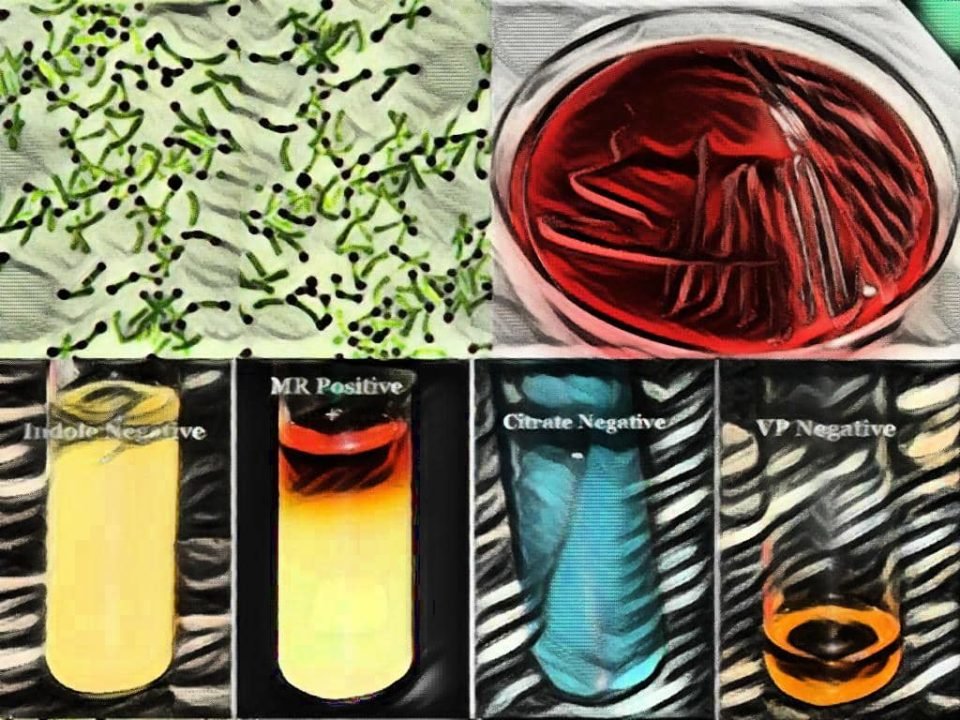Hey, Good to see you here 😀 …… In this Article, we’re gonna discuss in detail about various biochemical tests of Corynebacterium diphtheriae….. If you have any queries, don’t forget to mention in Comments…Thanks
In this Article, I’m gonna discuss various biochemical reactions for the well known causative agent of Diphtheria & Cutaneous infections i.e. the Corynebacterium diphtheriae abbreviated as C. diphtheriae.
However, only a few reactions are most commonly used and medically important for distinguishing pathogenic strains of Corynebacterium diphtheriae from other non- pathogenic strains as well as from other species of Corynebacterium which are as follows:-
Catalase Positive
Indole Negative
Citrate Negative
Urease Negative
Methyl red (MR) Positive
Voges – Proskauer (VP) Negative
⇒ Blackish–brown colonies with a brownish halo around the colonies on Tinsdale agar medium
⇒ Greyish black colonies with weak b-hemolysis or γ-hemolysis on Tellurite blood agar medium.
Besides that of various biochemical reactions and Sugar fermentation tests, certain enzymatic reactions are also medically important to distinguish Corynebacterium diphtheriae from other Corynebacterium sp.
Below is the list of these Enzymatic Reactions and various other biochemical tests for Corynebacterium diphtheriae which have great importance in research and for knowledge but are not routinely employed:
TESTS RESULTS
Catalase +VE (POSITIVE)
H2S Production +VE (POSITIVE)
Methyl Red +VE (POSITIVE)
Nitrate Reduction +VE (POSITIVE)
Tellurite Reduction +VE (POSITIVE)
Alkaline Phosphatase -VE (NEGATIVE)
CAMP Test -VE (NEGATIVE)
Citrate -VE (NEGATIVE)
Coagulase -VE (NEGATIVE)
Esculinase -VE (NEGATIVE)
Indole -VE (NEGATIVE)
Oxidase -VE (NEGATIVE)
Ornithine decarboxylase -VE (NEGATIVE)
Tyrosine Hydrolysis -VE (NEGATIVE)
Urease -VE (NEGATIVE)
VP (Voges Proskauer) -VE (NEGATIVE)
Corynebacterium diphtheriae ferments various sugars producing acid without Gas production.
But these sugar fermentation tests are of no diagnostic value in routine laboratory tests except Lactose & Mannitol fermentation test, which is of great importance in differentiating Corynebacterium diphtheriae, which is unable to ferment Lactose and mannitol, from other Pathogenic & non-pathogenic Corynebacterium species.
The other sugar fermentation tests which are described below are of great importance in research work.
SUGARS RESULTS
Arabinose +VE (POSITIVE)
Dextrose +VE (POSITIVE)
Fructose +VE (POSITIVE)
Glucose +VE (POSITIVE)
Maltose +VE (POSITIVE)
Mannose +VE (POSITIVE)
Dulcitol -VE (NEGATIVE)
Lactose -VE (NEGATIVE)
Mannitol -VE (NEGATIVE)
Salicin -VE (NEGATIVE)
Trehalose -VE (NEGATIVE)
Xylose -VE (NEGATIVE)
Galactose VARIABLE
(As Per The Strain)
Raffinose VARIABLE
(As Per The Strain)
Starch VARIABLE
(As Per The Strain)
Sucrose VARIABLE
(As Per The Strain)
That’s all about the Biochemical tests for Corynebacterium diphtheriae
Frequently Asked Questions (FAQs)
Q1. What tests are done for Corynebacterium diphtheriae?
The diagnosis of Corynebacterium diphtheriae infection involves multiple tests, including culture on selective media, Gram staining, and biochemical tests for identification. The most important test is the Elek test, which detects the production of diphtheria toxin by the bacterium.
Q2. What are the biochemical properties of Corynebacterium diphtheriae?
Corynebacterium diphtheriae is a gram-positive, non-spore-forming, aerobic bacterium that can grow on a variety of media, including Loeffler’s serum medium and Tellurite blood agar. The bacterium produces catalase and is positive for the urease test.
Q3. What is the biochemical characterization of Corynebacterium?
Corynebacterium is a genus of gram-positive, non-spore-forming, aerobic bacteria that are characterized by their irregular, club-shaped morphology. Biochemical tests used for identification include catalase, oxidase, nitrate reduction, and urease tests.
Q4. Which test is performed in Corynebacterium?
Multiple tests are performed for the identification of Corynebacterium species, including catalase, oxidase, nitrate reduction, and urease tests. Specific tests for C. diphtheriae include Elek test and PCR for detection of the diphtheria toxin gene.
Q5. What is the gold standard test for Corynebacterium diphtheriae?
The gold standard test for Corynebacterium diphtheriae is the Elek test. This test detects the production of diphtheria toxin by the bacterium, which is essential for the diagnosis of diphtheria infection.
Q6. What are the biochemical tests for identification of Clostridium?
Biochemical tests used for identification of Clostridium species include catalase, oxidase, motility, spore staining, and gas-liquid chromatography. Specific tests for C. botulinum include the mouse bioassay and the ELISA test for detection of botulinum toxin.
User Review
( votes)
Laboratory Hub aims to provide the Medical Laboratory Protocols & General Medical Information in the most easy to understand language so that the Laboratory Technologist can learn and perform various laboratory tests with ease. If you want any protocol to be published on Laboratory Hub, Please drop a mail at contact@laboratoryhub.com. Happy Learning!

